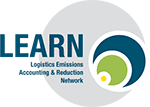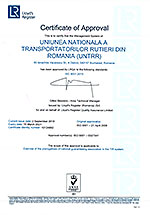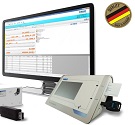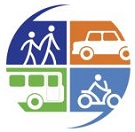20.03.2020: informații actualizate privind măsurile luate de unele state în contextul COVID-19
BELARUS
With effect from 19 March 00.00, drivers non-resident in the Republic of Belarus engaged in international transit operations through the territory of the Republic of Belarus can only use selected areas for rest, meals and refuelling vehicles. A detailed list with locations can be found on this map.
Source:Ministry of transport and communications of the Republic of Belarus
BELGIA
For passenger transport, the social distance measure of 1.5m must be respected for all types of collective transport of passengers still operational and allowed, including public bus transport.
In line with the advice regarding unnecessary journeys abroad, all coach services are in a lockdown phase. As schools have been closed, all related transport has been suspended, apart from schools requiring transport to respect their duty of day care for children from families working in key roles, such as health care workers.
The professional training for driving licences or continuous education, and even MOT control have been suspended and appropriate measures are taken to waive the potential validity violations.
Source: FBAA
CHINA
Overview of the situation at land borders for passenger transport operations:
According to a notice published on 20 March by The State Council of The People’s Republic of China, China will suspend cross-border road transportation for passengers and hold back inbound and outbound tourist services as part of a broader effort to curb the importation of novel coronavirus (COVID-19) cases from 20 March until further notice.
Sources: National Immigration Administration and https://www.chinadaily.com.cn/a/202003/20/WS5e740aa9a31012821728095b.html
GERMANIA
Restrictions
As of 16 March, 08:00, Germany has been re-introducing temporary border controls at the borders with Austria, Switzerland, France, Luxemburg and Denmark.
The following groups of persons may continue to enter German territory via the borders with Austria, Switzerland, France, Luxemburg and Denmark:
- persons with German nationality.
- persons with a German residence permit.
- persons with residence in Germany.
- professional commuters, regardless of their nationality - proof of commuting status should be carried (template for a commuter certificate here). Seasonal workers, EU parliamentarians and accredited diplomats may also enter the country.
- persons who have urgent reasons for entry - proof of urgent reasons should be carried. The Federal Police make individual decisions at their discretion.
In addition to the above, and most relevant for our profession:
Cross border movement of goods remains guaranteed. BGL is not aware of any cases where cross border goods transports have been refused entry into Germany via the above mentioned borders.
The following groups of persons will be refused entry onto German territory via the borders with Austria, Switzerland, France, Luxemburg and Denmark:
- persons who do not belong to any of the above mentioned groups allowed to enter German territory.
- persons who show symptoms of illness - in these cases, the competent health authority will be consulted immediately.
More information is available here and here.
Situation in rest and service areas on German motorways:
- In rest and service areas operated by the TANK & RAST group, use of the SANIFAIR sanitary facilities free of charge since 17.03.2020, with the objective of ensuring drivers’ access to crucial hand hygiene. Free access to the SANIFAIR sanitary facilities is granted via the “children’s entry” and will be explicitly signposted. TANK & RAST group is operating 330 of the rest and service areas on German motorways and drivers should look for the TANK & RAST symbol.
- TANK & RAST have also announced that they will keep open not only the petrol stations but also the attached shops (bakery products, snacks, retail) at all rest and service areas operated by them.
- BGL is in contact with all remaining providers of motorway rest and service areas to ensure ongoing services and access to sanitary facilities with suitable opening times for all German rest and service areas on motorways. This subject is also being discussed with the Ministry of Transport on the highest political level.
Relieves
The Federal Government of Germany has asked the Länder to suspend the weekend traffic bans of truck movements to ease the situation during the crisis. BGL has provided an overview of the situation in the different regions here.
In addition, it has been decided at Federal level on a temporary relaxation of driving and rest times rules based on Article 14.2 of the EU Regulation 561⁄2006. The measure applies to road transport of goods of daily necessities, including food, medical equipment and fuel, and is valid until 17 April, included. Measures lifted are the following:
- Possibility to extend driving time to 10 hours five times per week.
- Possibility to take two consecutive reduced weekly rests within a period of four weeks.
The measure applies to professional and own account transport. More information here.
Sources: BGL (from Federal Government) and German Minister of Internal Affairs
LITUANIA
Update on the situation at land borders in Lithuania:
Lithuania has reintroduced restrictions at the borders of Poland and Latvia. With effect from 14 March, foreign nationals are not permitted to enter the country by any means of transport. Exceptions are in place for persons residing in the Republic of Lithuania, and persons employed within Lithuanian companies, and are either engaged in the international commercial transport of goods, or performing an international commercial transport of goods, by any means of transport.
Foreign carriers with cargo vehicles transitting through Lithuania are permitted.
Source: LINAVA
MAREA BRITANIE
The Department for Infrastructure (DfI) has issued notification of a relaxation in the drivers' hours rules for Northern-Ireland. This temporary relaxation applies from 00:01 on Wednesday 18 March 2020 and will run until 23:59 on Thursday 16 April 2020. Initially, this will apply for the drivers of vehicles involved in the delivery of food, non-food (personal care and household paper and cleaning) and over the counter pharmaceuticals when undertaking the following journeys:
- Distribution centre to stores (or fulfilment centre).
- From manufacturer or supplier to distribution centre (including backhaul collections).
- From manufacturer or supplier to store (or fulfilment centre).
- Between distribution centres and transport hub trunking.
- Transport hub deliveries to stores.
This exemption does not apply to drivers undertaking deliveries directly to consumers.
Operators are reminded that this relaxation does not excuse them from their duty of care to drivers and that drivers should not be allowed or required to drive whilst tired. Operators seeking to use the exemption should read the DfI notice in detail; this can be found here.
Source: FTA
MONGOLIA
In relation to the prevention of the Coronavirus (COVID-19) pandemic, the Government of Mongolia is taking the following measures:
- The entry of foreign, third country citizens and stateless persons is prohibited, from 11 - 31 March, 2020;
- All international passenger air traffic and train movements are cancelled, from 10 - 28 March, 2020;
- National bus, air and rail transport are all operating normally;
- All borders remain open for the flow of goods and truck drivers.
Following its 12th meeting on 17 March 2020, the State Emergency Commission of Mongolia has introduced additional measures, which state that all foreign trucks with goods arriving at the border crossing point of Altanbulag are subject to disinfection, which will be organised on the spot by the authorities. Trucks will then be escorted by the police to the customs control zone in Ulaanbaatar, in order to perform the customs clearance formalities and to enable the delivery of goods to the consignee. Upon completion of these procedures, foreign trucks are requested to return immediately to the border crossing point of Altanbulag, and then exit the country. Please note that the new requirements are applicable to all foreign goods transport operators and trucks.
Source: NARTAM
LUXEMBURG
Restrictions
A state of emergency has been declared for 3 months but may be cancelled earlier. There are no restrictions considering transport of goods in Luxembourg, but there may be short waiting times at the borders.
Relieves
Luxembourg has agreed on a temporary and limited relaxation of the enforcement of driving and rest times for the drivers involved in domestic and international delivery of goods. This relaxation is granted pursuant to Article 14(2) of Regulation (EC) No 561/2006. This temporary relaxation applies from 19 March 2020 and will run until 17 April 2020.
Luxembourg has made it clear that driver and road safety must not be compromised. Drivers should not be expected to drive whilst tired - employers remain responsible for the health and safety of their employees and other road users.
For the above mentioned category of drivers, the following provisions will be temporarily relaxed as follows:
- Derogation to Article 6(2): replacement of the maximum weekly driving limit of 56 hours with one of 60 hours.
- Derogation to Article 6(3): replacement of the maximum fortnightly driving limit of 90 hours with one of 96 hours.
- Derogation to Article 8(6): postponement of a weekly rest period beyond six-24 hours period.
Source: CLC
POLONIA
Restrictions
On 13 March, the Prime Minister of Poland announced a “state of emergency”. In addition to measures to limit public gatherings, the government announced that border controls will be temporarily restored from 15 March(00:00) for 10 days (renewable). During this period:
- Foreigners will not be allowed to enter Polish national territory. All air traffic and train movements coming from abroad will be temporarily suspended.
- Polish citizens and foreigners working in Poland that are returning from abroad must undergo a two week quarantine period.
- National bus, air and rail transport will operate normally.
- International road freight transport is not included in these restrictions. Borders remain open to the flow of goods and truck drivers operating international road freight will not have to comply with the two week quarantine period. The list of border crossing points open during this period is available here.
On 19 March, the Polish Minister of Health lifted the previous duty of fulfillment of driver localisation forms. In addition, according to information on the Border Guard website, quarantine is not imposed on:
- people living in Poland who work in a neighbouring country and who regularly cross the border (cross border workers).
- foreigners living in a neighbouring country who work in Poland and cross the border regularly (cross border workers).
- drivers engaged in the professional transport of goods and passengers.
Health checks are still taking place at border crossing points. Drivers with a temperature of above 38 degrees will automatically undergo a medical examination and will not be able to continue driving.
The updated border waiting times can be found here: www.granica.gov.pl.
Relieves
The Polish Minister of Transport has introduced a temporary relaxation of the enforcement of driving and rest times for drivers performing international road transport of passengers and goods. This exception applies from 18⁄03⁄2020 to 16⁄04⁄2020, included. The relaxation concerns only international transport and covers EU-registered hauliers only (not applicable to Contracting Parties of the AETR Agreement). Measures lifted are the following:
- Daily vehicle transport time cannot exceed 11 hours.
- The weekly transport time of the vehicle cannot exceed 60 hours.
- The total transport time of the vehicle over a consecutive two week period may not exceed 96 hours.
- After a five and a half hour period of driving, the driver shall be entitled to a continuous break of at least forty-five minutes.
Due to the extended transport time of the vehicle, from 9 to 11 hours, no derogations will be applied on daily and weekly rest periods.
Source: ZMPD
RUSIA
Restrictions
The Russian federation is temporarily restricting the entry of foreign citizens and stateless persons, from 18 March 00:00 to 1 May 00:00 (Governmental Decree No. 635-р of 16 March 2020).
The entry restrictions will not apply to the following:
- vehicle drivers on international roads;
- crew members of aircrafts, ships/boats and international railway trains;
- members of official delegations;
- persons with diplomatic, service or ordinary private visas that were issued in connection with the death of a close relative;
- persons either permanently living in the Russian Federation or travelling through air border crossing points.
The current decree establishes a unified approach towards the border crossing of Russia and substitutes other legal acts adopted earlier in this regard.
Relieves
The Prime Minister of the Russian Federation, Mikhail Mishustin, has announced that with effect from 20 March, 2020, all restrictions (including customs restrictions) on the supply of essential goods will be lifted for one month.
Mr Mishustin said, “We are introducing a "green corridor" for importers and large retail chains. A zero customs duty rate is set for the import of a number of goods, including medicines and medical devices”.
Source: Russian Government (http://government.ru/en/news/39172/and http://government.ru/news/39221/)
SLOVACIA
Slovakia has agreed on a temporary and limited relaxation of the enforcement of driving and rest times for drivers involved in domestic and international delivery of goods. This relaxation is granted pursuant to Article 14(2) of Regulation (EC) No 561/2006. This temporary relaxation applies from 19 March 2020 and will run until 17 April 2020, included.
Slovakia has made it clear that driver and road safety must not be compromised. Drivers should not be expected to drive whilst tired - employers remain responsible for the health and safety of their employees and other road users.
For the above mentioned category of drivers, the following provisions will be temporarily relaxed as follows:
- Derogation to Article 6(1): replacement of the maximum daily driving limit of 9 hours with one of 11 hours.
- Derogation to Article 6(2): replacement of the maximum weekly driving limit of 56 hours with one of 60 hours.
- Derogation to Article 6(3): replacement of the maximum fortnightly driving limit of 90 hours with one of 96 hours.
- Derogation to Article 7: replacement of the minimum daily breaks requirements by imposing a break of 45 minutes after 5 and a half hours.
- Derogation to Article 8(1): Reduction of the daily rest requirements from 11 to 9 hours.
Source: CESMAD Slovakia


































